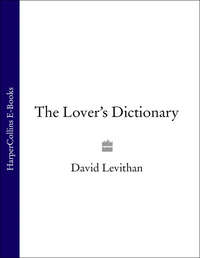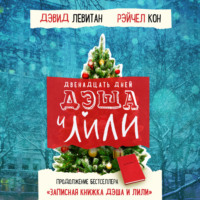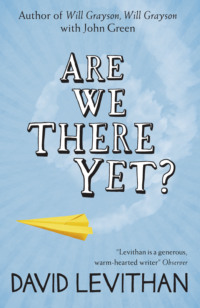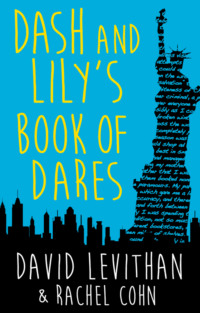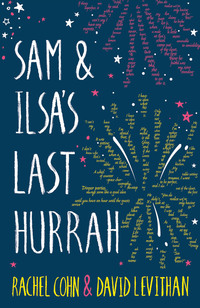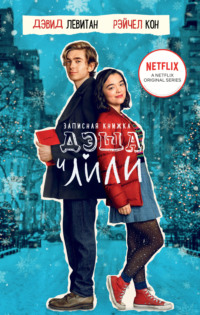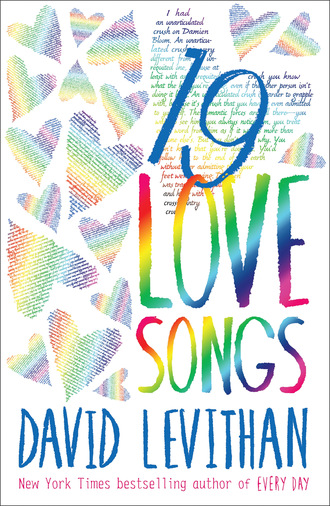
Полная версия
19 Love Songs
Because of this, I liked it a lot.
Jason’s room is clearly his home base—the rest of the apartment holds fewer representatives from outside our universe. It isn’t a large place—just the two bedrooms wedged together with a kitchen and a den. Big enough for two people, but I feel it’s meant for at least one more.
I try to stay quiet—over the years, I’ve learned to wake a parent only if it’s really, really important. Back before I realized I was waking into a different life each morning, I stormed carelessly into my various parents’ bedrooms, no matter what time it was. Most told me to go back to bed. Some used it as an excuse to get up. And enough lashed out at me that I stopped doing it, terrified that I’d landed in the wrong kind of life, and that my excitement at being awake would be used against me.
On tiptoe steps, I enter the kitchen and find a valentine wonderland awaiting me. The room is aswarm with hearts—dropping from the ceiling, constellated across the cabinets, blooming from the countertop. There have to be hundreds of them, and to my eight-year-old eye, it looks like thousands. They peek out from drawers, scale the refrigerator, conga across the floor. In the silence of my sleeping, my mother has constructed this for me. There are hearts popping out of the toaster. Hearts running away with the spoons. Hearts swimming above napkins and hopscotching the paper towels.
I can’t help but pick one up, feel the red paper between my fingers. Already, the heart in my hand is forming a personality in my head. This heart—a little squat, a little heavier on the left side—is a bit slower than the rest, but he tells good jokes. I name him Bruno. (I don’t know where the name comes from; it’s probably the dog or cat from a house I once lived in, the name all that remains in my memory.) Immediately, Bruno makes two friends, Sally and Lucy. They talk a valentine language, but luckily I can translate it into English.
This is how my mother finds me nearly an hour later: at the kitchen table, building a jungle gym for my new friends. Celery for a slide. Broccoli to climb. Carrot sticks at fort-making angles. Bruno still has center stage, but the cast of characters has grown to at least a dozen. I believe I know them well.
“Happy Valentine’s Day!” my mother says.
Years later, I will remember her voice. I will remember the way she said it. With chime-like clarity, announcing that this is indeed a special day, and that even though I have done nothing to deserve it but be myself, it all belongs to me.
In my haste to get lost in the heart-world I’ve conjured, I’ve forgotten to put out the envelopes Jason left. I’ve stashed them in a corner, by the gremlin-grumbling base of the refrigerator. Now I scoot down from my chair to retrieve them. I have not touched the larger pink envelope I found with my name on it on the kitchen table. I knew to wait until Mom woke up before opening it.
My mother goes to the cupboard and reaches for something on a shelf I can’t imagine ever being able to reach. A few hearts fall as the door swings, but they make a soft landing. Two red-wrapped boxes emerge in her hands. I wonder how long they’ve been up there, and at the same time I could just as easily believe they’ve appeared at this very moment.
It is just the two of us, giants in the world of hearts. It is just the two of us, together in a small kitchen on a Sunday morning. It is just the two of us, and now I am handing over my twelve envelopes and she is handing over the red-wrapped boxes, accompanied by the pink-clad card.
It is a trick I’ve learned, to feel as if a card is for me even if it’s really addressed to the person I am that day. This is the only way I stop myself from falling through the fabric of everyday life. When I was a child, I could make myself believe that the words and the love behind them were always meant for me. Especially if I saw the expression of love in the eyes of the person who was giving the card to me.
As my mother opens her envelopes, I can see I’ve given her a whole pack of Star Wars valentines, providing each character with his or her own elaborate autograph. The card for me, meanwhile, has a pack of walruses on it, making the shape of a heart on an ice floe. (I have to look closely to make sure they’re not Wookiees.) In the first red box my mother has given me, I find a red scarf. In the second red box, I find a pair of red mittens.
When you get older, red becomes more complicated, just as hearts become more complicated. But back then, the world was far from a bloody, angry, embarrassing thing. Red had one meaning, and that meaning was love. There in the kitchen, I wrap myself in it, I clothe myself in it, and I’m sure that my smile is just as red as the mittens, and the heart in my chest is just as red as the scarf.
My mother holds up a card with a masked figure on it. The caption reads, May you HUNT up a BOUNTY of HEARTS.
“I think this is my favorite,” she tells me. “Boba Fett’s a real romantic, isn’t he?”
I have no idea what she’s talking about, but I nod earnestly, which only makes her smile more.
“So what shall we do with our Valentine’s Day? Maybe some valentine waffles to start?”
She has a heart-shaped cookie cutter at the ready, and uses it to force some Eggos into the holiday spirit. As she does, she hums a song I don’t know. I want to sing along, but I can’t. Most of the songs I’ve learned in school involve grand old flags and amber waves of grain. None seem to apply to this moment.
She tries to shape the butter into hearts, but it doesn’t quite work. The syrup, however, allows itself a heart-shaped pour. I almost don’t want to eat the waffles, they seem so loving.
I think my mother senses I’m on the verge of giving the waffles names. “Go ahead,” she says, now making two for herself. “Before they get cold.”
She turns on the radio, and we’re serenaded by commercials and forecasts. Sitting at the kitchen table, I am reminded how households with only two people have a different kind of gravity than others. We need the background noise, because otherwise the burden is entirely on us. And at the same time, there isn’t that much of a burden, because we are used to the two-person rhythm of things, the constant awareness of one another without much needing to be said. We are the only objects exerting any gravitational pull on our attentions. The pull has some slack to it, some give.
After the waffles are gone, I head back to my room and play some more with the hearts, letting them explore the Millennium Falcon and some sketches Jason has made of the Death Star.
As I do this, my mother washes the dishes, then goes to her room to do other things I don’t notice. When she emerges again in my doorway, she has a bottle of pink liquid in her hands.
“How about a strawberry bubble bath?” she asks.
I am not going to argue with that. I watch, hearts in hand, as she draws the bath, checking to make sure the water isn’t too cold and isn’t too hot. When it’s just right, she pours the pink in, and I watch the bubbles race to the surface. She leaves me alone to submerge myself into strawberry-scented oblivion. My thoughts wander, but not to a place where I can follow them. I turn the bubbles into peaks, into clouds that I toss into the air. It doesn’t occur to me to wash myself. It’s as if I believe the steam will evaporate me into being clean.
From the bathtub, I can hear my mother walking around the apartment. Every now and then, she asks if everything is okay, and I let her know I’m good. Finally she suggests it might be time for me to get out of the tub. I have already used the tap to add more hot water, and the bubbles are starting to wear thin. So I rise from the tub, a foamy tempest, and then towel myself off and get dressed in a red shirt and green jeans. I wish I had red socks and sneakers, too.
I remember this. I remember all of this.
The next thing I remember, we are walking in the zoo. I know we must have talked about going there. I know we must have driven. But those were everyday acts, and I’m sure I didn’t even hold on to them at the time they were happening. The zoo, however, is different. I have been here before, with other parents, on a field trip. And I’m sure Jason has been here before, too, since his mother doesn’t offer much in the way of tour guidance. Instead she brings Valentine’s Day with her. I remember her pink scarf. I remember my red mittens. I remember us making our way to the mother panda and the baby panda, and I remember the story my mother tells me about how they’re going to spend Valentine’s Day. After everyone’s gone—after even the guards go off to do other things, like check the giraffes—the pandas are going to have a party, just the two of them. They are going to sip pink lemonade through bamboo straws and share heart-shaped chocolates they’ve ordered all the way from China. I listen to her tell me all this, rapt, and then ask her wonder-filled questions: Will they play music at this party? Do they give each other cards? Are the chocolates the kind with fillings, or are they chocolate through and through? Do pandas like the peanut butter ones the best, like I do? My mother has an answer for each and every question.
I watch the pandas and smile. Even though they’re chewing bamboo, even though they aren’t really paying attention to us, I know their secret plans. Even though I know they’re bears, just like the bears you have to be afraid of in the woods, when I look at them, all I can see is softness. I want to give them valentines. I want to buy them red licorice for their party, even if it ends up being from CVS, not China.
At eight, I still let myself believe, because it’s more fun and welcoming to believe. The older I get, the more I will feel I have to assert my logic, the more I’ll feel I have to prove that stories are lies. Or at least until I reach the point when I appreciate stories again, until I reach the point when I realize how they help me live my life. At eight, I am on the cusp. I am sure there are so many things about Jason, about Jason’s mother, about the pandas in their pen, that I’m not seeing. But his mother’s love is strong enough that I don’t care about what I’m not seeing. Instead I want to live in the story of what is there.
The pandas don’t get the red licorice, but I do. When we leave the zoo, we go on a hunt for pink lemonade, and when we find it, I use my licorice as a straw, pretending it’s bamboo. When we go for lunch, I don’t notice any of the couples around us. I don’t measure our day against theirs. In due time, I will see the day as a conspiracy to milk romantics of their rose money. But that’s not how I learned it. That isn’t how any of us learn it. Our first valentines are never from someone we’re dating or have a crush on. Our first valentines are always like this.
My mother convinces the amused waitress to convince the chef to make our pizza so the red will be on top, the cheese underneath. When it arrives at our table, the chef has even added red peppers, shaped in a heart. I am delighted. (A wonderful word for a wonder-filled feeling, delighted.)
I can coast on my excitement for a while, but by the time we get home, I’m tired. I don’t remember napping, but I must nap, because I remember waking up. I remember it being light out, but just barely. I play for a few minutes with Bruno, Sally, and Lucy, and introduce them to Chewbacca, Han Solo, and C-3PO—although, not knowing these guys’ true names, I call them Rex, Harry, and Goldie, respectively. They are planning a valentine party of their own. Chewbacca Rex is a little in love with Sally, but Sally has no idea. Bruno is secretly jealous. Goldie C-3PO consoles him.
When the story has played out for as long as my attention span will allow, I decide to leave my bedroom. Quietly, I venture toward the kitchen, probably to retrieve more of Bruno, Sally, and Lucy’s heart-shaped friends. When I get to the doorway, I see my mom inside, but she doesn’t see me.
Here my memory takes hold. Here I contradict my earlier statement, because isn’t this an everyday moment, too? Why do I end up remembering it so many years later—why do I remember this woman, who I only know for one day? She is sitting at the kitchen table. A pink-frosted cake sits in front of her, the container of frosting still on the table beside it. She has a bag of candy hearts open, and she has been putting them onto the cake. I have caught her pausing in the middle of this task. A small green candy heart is held between her thumb and finger. The bag is right by her wrist. But she isn’t looking at the bag, or at the cake, or at me in the hall. She is looking at something that isn’t there. She is looking at nothing at all. She is seeing something without looking. She is in the room and she isn’t in the room. She is lost in her own private universe, a vast and small place that I can only see as it’s reflected in her body. It is not sadness I see. I would understand sadness. I see, instead, what an adult looks like when she is unmoored from gravity. When she forgets what gravity is like. When the pull of other universes is so faint that there is only the private universe left.
I remember this so well because one day I will understand it. What’s important isn’t what I notice—it’s this recognition beneath, and what comes next. Because the minute she sees me, gravity returns. The minute she sees me, the private universe expands. The minute she sees me, she comes back. And I think: love. I know then, without being able to articulate it, that love is the gravity.
She asks me if I want to finish decorating the cake. I ask her who it’s for. She tells me it’s for us . . . and Boba Fett, if he drops by.
I don’t want Boba Fett to drop by.
We eat two slices of the cake, and I’m sure we eat dinner, too. Afterwards, I help with the dishes and steal fingerfuls of icing from the cake that remains. Pink frosting is, to me, toothpaste’s super fun cousin. My mother, however, will not allow me to brush with what’s left.
Instead I am asked to use the less fun cousin before I change back into my Wookiee wear and jump into bed. I am not tired, not tired at all, but then my mother comes in and says she’ll read to me for a little while. I don’t remember what book it was—it almost doesn’t matter, because the sensation of being read to is so much more powerful than any individual story. Easing myself into her words allows me to loosen my grip on the fierce wakefulness I’d proclaimed when she entered the room. When she finishes, I am nearly in a dream state. But not quite, because I still remember her turning out the light, and then, by the glow of an R2-D2-shaped night-light, singing me off to sleep.
I could have panicked. I could have mourned ahead of time that I was going to lose this all the next day. I was old enough to know what was going on.
But I didn’t do any of that. I let myself take it as mine. I let myself enjoy it.
I let myself believe.
We give each other gifts. Red scarves, red mittens. Cards and licorice. Upside-down pizza. We give each other gifts, but really we give each other details. When days are gone, whether they be holidays or ordinary days, when you are nowhere near where you once were, the details have a way of staying. Trips to the zoo. The decorations on a cake. We keep them. They keep us. Bedtime melodies. Constellations of construction-paper hearts. I have added them up, and in my memory, I see love.
TRACK THREE
The Good Girls
In high school, I was one of the good girls.
My parents didn’t know what to think. Every night, there’d be the parade of phone calls for their son. I’d slip out of the room, behind closed doors, to talk about friends and homework and relationships (rarely my own) and, every now and then, the meaning of life. They didn’t know all these girls’ voices like I did, so they were never really certain who was calling, or why. Either I had dozens of girlfriends or I didn’t have any at all.
The truth was most of my friends were girls. Mayling, Elana, Joanna, Carolyn, Lauren, and Marcie were the good girls. Lynda, Dvora, Rebecca, Susannah, Dina, Meg, and Jinny were the good girls who hit on the boy thing when we hit high school. Eliza, Jodi, Jordana, Jeannie, and Maryam were the good girls one grade below us. Jennifer, Sami, and Tracey were the good girls who didn’t do the group thing with us as much. There were boys, too . . . but there weren’t that many of them. The girls were the nucleus of my social life.
We didn’t talk about sex; we talked about love. We never, ever used party as a verb. Awkwardly mixed drinks and the occasional beer or wine cooler were as alcoholic as we got. Pot was a big step. Cocaine was unimaginable. We were the kids for whom VCRs had been invented. We watched When Harry Met Sally . . . over and over again and pondered its lessons like it had been filmed in Aramaic. The central question, of course, was: Can guys and girls really be friends? I liked to think I was the proof positive, because even though I fell for one of my female friends every now and then, friendship always managed to win out in the end.
It hadn’t yet occurred to me to like boys.
We good girls coveted our phrasings like they were SAT flash cards. We honed our wits like Dorothy Parker at an Algonquin lunch table. We were smart, and we knew it. We were dorks, and we knew it. But instead of hiding both things, we embraced them. We created our own form of popularity. In our town of Millburn, New Jersey, where the football team never won, this was surprisingly easy to do.
Many of the girls were in the Millburnettes, the girls’ singing group. If any of them dated, odds were that she’d date one of the Millburnaires. I myself failed my Millburnaire audition because I tried to make every song sound like “Bring Him Home” from Les Misérables. Mr. Deal, the fussy, testy diva of a chorus director, was half-appalled and half-amused. He gave me another chance, and I decided not to take it. I hadn’t wanted to wear the ultra-blue polyester Millburnaire outfit anyway.
Instead I became a Millburnette groupie. And a school musical groupie (memorably playing the one-lined doorman in Kiss Me, Kate). I joined the fencing team—because all my friends were there, because I needed a sport for my college applications, and because at practices, some of the girls and I talked much more than we parried.
I have learned over the years that it’s decidedly uncool to say I enjoyed high school—many people are lucky to have survived it, and others who didn’t have as bad a time like to say they did. Since I was one of the good girls, I found life in high school to be . . . good. It wasn’t always easy, and it wasn’t always nice. But through it all, I felt a passive happiness that would break out sometimes into an intensely active happiness. This would usually happen in the most random ways: Mayling pulling her long sleeve to her nose and proclaiming “I am an elephant!” with the rest of us following suit; me and Lynda holding up signs to each other in the middle of the Metropolitan Opera House, since I was in the balcony and she was in the orchestra, and we couldn’t go the length of an opera without passing some word to each other; me and Jennifer leaving lunch early and sitting on the fenced-off stairway that led to the auditorium, remarking on the people who passed us and, when the hallway traffic was slow, talking about books. If we never felt the full swoon of romance, we often felt the giddy buoyancy of friendship. It was a counterbalance against all the tests we faced—tests in the classrooms, tests in the hallways, tests in what we wore and what we said and who we were.
It was a sisterhood, and I was the brother. There were some conversations I wasn’t a part of—you would think that hanging out with so many girls would open my eyes to their side of the sex thing, but with a few exceptions, this rarely came up. Instead I was exposed to the girls’ emotional landscapes, and even more important, I was allowed to have one of my own. We wore our feelings so openly—whether it was annoyance or distress or delight or anger or affection we felt. In that time and place, I wouldn’t have learned such openness from the boys. There were certainly times when everything seemed like a big traumedy . . . but I learned to deal with that. By talking it through. By talking it out. And if none of those things worked, Lynda always advised a haircut. When you wanted to change your life, she said, a haircut was often the easiest way to start.
We good girls didn’t date much, for the same reason that I didn’t clue in to my own boy thing as fast as I might have. In our somewhat small high school (with 160 or so students in our class), there weren’t that many bookish, articulate, cute, sensitive, clever, crush-worthy boys. In retrospect, I can see a couple of crushes I had without labeling them as such—tangential boys, nobody that close to me. They were usually a year or two older than I was and talked about philosophers and writers like other boys talked about sports or computers. It’s not like I dreamed of kissing them, or dating—I was just fascinated by them, mostly from afar, with occasional glimpses up close.
I also had friendship crushes—on boys and girls—but those were different; those friends I liked because of what I knew about them, not because of their mystery. I didn’t want to be their boyfriend. I wanted to be their best friend. I learned early, and learned well, that the person you talk to about the crush is much more important than the crush itself.
Instead of dating, the good girls and I were one big date-substitute. We played a lot of Pictionary. Sober Pictionary. We ruled the school newspaper and the lit mag. The B. Dalton bookstore was our favorite store in the mall, although we were never above dancing around the aisles of Kay-Bee Toys. We went into the city on weekends and waited in the half-price ticket line for Broadway shows, or went into the Village to shop for secondhand clothes. We went to museums. We rotated between Bennigan’s, T.G.I. Fridays, Chili’s, and La Strada, the local pizzeria. When we weren’t at the Morristown multiplex, we were at the Lost Picture Show in Union, which showed art films and had a roof that leaked. We read Margaret Atwood and J. D. Salinger and Kurt Vonnegut. (Some even read Ayn Rand, but I could never get into it.) We talked about art without realizing we could treat it as Art. A few of us signed our yearbooks with Sondheim lyrics.
So many gay boys—whether they know they’re gay yet or not—go through high school feeling like they’re the only ones. They think they’re the only ones who will never find love, the only ones who don’t really fit in, the only ones who aren’t coupled off. With the good girls, I was never the only one. Not in that way. I was sometimes the only boy. And I’m sure there were times when I thought it was ridiculous that the “dates” I had were fleeting at best. But because so many of my female friends were in the same boat, I didn’t really feel alone. There were no long, dark nights of the soul, because my soul was keeping pretty good company.
The girls and I flirted and bantered. Nonstop. We passed notes. Lord, we passed notes. String these notes together and you’d get the full symphony of my high school years, an almost minute-by-minute re-creation. Constant observation, reflection, honing life into prose.
Everything remained peaceable until our senior prom came along. It wasn’t a particularly big deal to me—I had already gone my junior year, the date of a girl I barely knew, who clearly had gotten to the bottom of her draft list before asking me. I’d had fun, but I’d also figured that it wasn’t actually a night that would change my life forever. Going into prom season, I was (as always) unattached, and while the question of who I would ask was hotly debated when I wasn’t in the room, when I returned to the room, I was left to my own obliviousness.
I decided to ask Jordana, a member of the junior posse of good girls. Bizarrely, I made this decision while watching her play the Mother Abbess in our high school’s production of The Sound of Music. Seriously. While she was busy exhorting Maria to climb ev’ry mountain, I was thinking, It would be fun to go to the prom with Jordana. Not as a date-date. But in lieu of a date-date.



